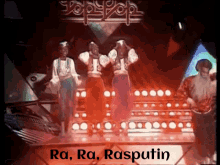Red Castle
Adventurer
oof... even harder to explain... I suppose your character just jump 20ft over it... in a close room... you somehow dodge every fire particle going at you...Unless you have Evasion, of course.
oof... even harder to explain... I suppose your character just jump 20ft over it... in a close room... you somehow dodge every fire particle going at you...Unless you have Evasion, of course.
You just step into Roguespace when nobody is looking!oof... even harder to explain... I suppose your character just jump 20ft over it... in a close room... you somehow dodge every fire particle going at you...
The removal of hit points, like all aspects of the game's mechanical operations, informs us as to what's going on (from an in-character standpoint) in the campaign world (which is, broadly, what "simulationism" is shorthand for). In this instance, they tell us that the character has been injured. Which is what any instance of a character losing hit points tells us: that said character has received physical harm.That is precisely my point, and why your fireball argument doesn’t make sense. You were saying that HP loss from a successfully saved fireball simulated something different from a martial attack that dealt damage even on a failed attack roll.
My point is, neither simulates anything. Both just remove hit points
Unless, of course, that idea drives you crazy and you don't want to play like that. It certainly is not better for you to not explain what's what's happening then.That is precisely my point, and why your fireball argument doesn’t make sense. You were saying that HP loss from a successfully saved fireball simulated something different from a martial attack that dealt damage even on a failed attack roll.
My point is, neither simulates anything. Both just remove hit points, the abstract combat pacing/character advancement mechanic used in D&D. There’s no difference in how either can be explained in terms of what happened in world to the characters. (In fact, I would argue that it’s best to not even try to explain it “in fiction” and treat it like the background music to an action scene.)
This still feels like special pleading.The removal of hit points, like all aspects of the game's mechanical operations, informs us as to what's going on (from an in-character standpoint) in the campaign world (which is, broadly, what "simulationism" is shorthand for). In this instance, they tell us that the character has been injured. Which is what any instance of a character losing hit points tells us: that said character has received physical harm.
Your idea, as best I'm able to understand you, seems to be that these operations tell us absolutely nothing, giving us no information as to what's happened from an in-character standpoint (and, because of this lack of information, allows us to paint the scene in any manner we choose, with no input from the mechanics involved). I not only disagree with that, but find it borderline incomprehensible that anyone would suggest such a thing, as it seems to deny the "role-playing" aspect of a role-playing game. (Admittedly, the degree of information we're oftentimes given by these operations can be fairly sparse, e.g. we're not told where on the character's body they've taken an injury, but there is absolutely some amount of information being conveyed.)
A quick refresher should make it clear that it's not.This still feels like special pleading.
Thank you for the quick refresher. Unfortunately for you, the Wikipedia article on special pleading referenced says nothing about how your argument isn't a case of special pleading.A quick refresher should make it clear that it's not.
That's not how we generally interpret them. We see hit points as representing a combination of endurance, skill, luck, and experience, which is why they go up when you gain levels. At our table, characters roll for injuries if they go to 0 HP.The removal of hit points, like all aspects of the game's mechanical operations, informs us as to what's going on (from an in-character standpoint) in the campaign world (which is, broadly, what "simulationism" is shorthand for). In this instance, they tell us that the character has been injured. Which is what any instance of a character losing hit points tells us: that said character has received physical harm.
Are we saying that someone with ten times more hit points can survived being stabbed ten times as much as a normal person?


(Dungeons & Dragons)
Rulebook featuring "high magic" options, including a host of new spells.